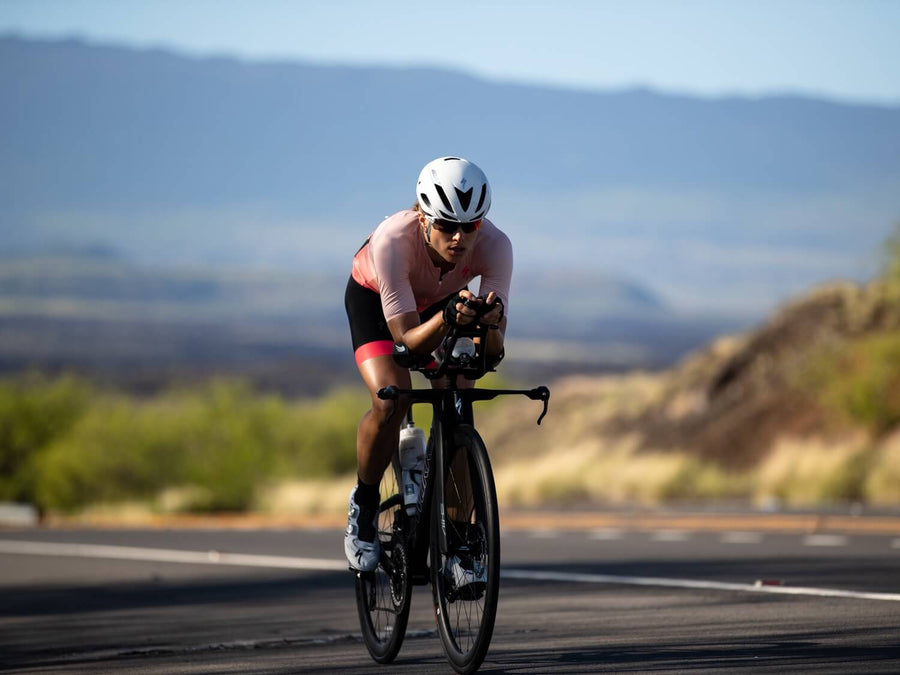
Beginner's Triathlon Tips
Growing up, I watched the annual coverage of the IRONMAN World Championship in Kona and found myself intrigued by the extreme endurance event covering a whopping 140.6 miles of swimming, biking, and running. I knew nothing about triathlon beyond the television broadcast, but I imagined myself someday becoming a triathlete. I had nothing beyond a vague idea that I might like the challenge and a feeling that distance might be insurmountable. Years later, I fortunately discovered that there are shorter distance triathlons, and the interest that took root in my childhood spurred me to try the sport.
1. Start small
Sign up for a shorter distance race for your first. I always recommend that your first triathlon be no longer than an Olympic distance race (1 mile swim, 25 mile bike, 6 mile run). The longer distances are always there when you have a bit more experience.
2. Know your limits
Make sure that you can comfortably cover the distances in easy discipline prior to race day. If you are capable of doing each distance, you’ll be able to string together all three sports with a little pacing, effort and determination.
3. Keep it simple
Don’t get too caught up in the fancy equipment. It’s nice to have all the fun gear, but you only need the basics to complete your first race: a comfortable swimsuit, goggles, running shoes, a functional bike, and a helmet. If the water is cold, try to borrow or rent a swimming-specific wetsuit. For my first triathlon, I borrowed my brother’s old bike; there’s no need to buy expensive gear until you know you like the sport.
4. Get comfortable in open water
The swim portion of triathlon is generally the most challenging. Before you race a triathlon, make sure that you are at ease swimming in open water. Even the most proficient pool swimmers can feel a bit anxious in a large body of water like a lake or the ocean. If in doubt, seek out a race with a swim portion that takes place in a pool.
5. Seek out calm water
Many races have a mass start; all of those bodies churning up water can heighten nerves. If the idea of potential physical contact and splash makes you anxious, seek out the edges of the field. Stay calm, breathe, and don’t be alarmed if someone touches you in the water. It can be hard to see sometimes, and people don’t intend to make contact!
6. Know the flow
The race venue for a triathlon can be pretty confusing, so it’s worth familiarizing yourself with the flow of traffic (swim entry and exit, transition set up, transition entry and exit, finish line) prior to the chaos of racing.
7. Be organized
Compared to other endurance events, triathlon gear can be complicated. Keep warm clothes for the morning, your race gear, and post-race clothing separated.
8. Breakfast matters
Eat a good breakfast 2.5-3 hours before the race. Opt for foods that are easily digestible. My favorite pre-race breakfast is coffee, white rice, and scrambled eggs; a bit of fat and protein to keep me satiated, along with carbohydrates and a kick of caffeine.
(Photo Cred: Sarah True. Find more food and training inspo at @sarah.b.true.)
9. Just keep swimming...and biking and running
If Dory from Finding Nemo had legs, she would have been a great triathlete. There might be points during the race where it gets pretty hard, and you’ll have to remind yourself to keep moving one stroke or step at a time. In my first triathlon, I got off the bike and my legs felt so tired that I thought that I would have to stop. I kept on running, however, and I eventually felt a bit better. If you need to stop during the swim and tread water for a few seconds, do it! If you need to walk on the run, go for it! All that matters is that you keep progressing forward and get to that finish line.












